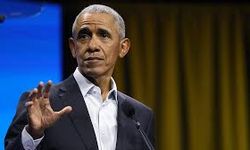Former President Donald Trump won the Republican Party state primaries in New Hampshire ahead of the US presidential race in November.
But Trump did not just want to finish ahead in New Hampshire. According to analysts, Trump was aiming to knock his closest rival Nikki Haley out of the race ahead of the next election in South Carolina on February 24, which is expected to be highly contested.
The former president easily defeated the former South Carolina governor, but his elaborate strategy to knock Haley out of the race fell short.
Trump was thus temporarily deprived of the chance to turn his full attention to current Democratic President Joe Biden and the general election on November 5.
For the second time since the Ioawa primaries, Trump outpolled former US Permanent Representative to the United Nations Nikki Haley, according to unofficial results reported by AP.
With 92 percent of the votes counted, Trump is 12 points ahead of his rival Nikki Haley. These figures give Trump 12 electoral delegates and Haley 9 in the state.
According to the tentative results, Trump received at least 54.6 percent of the votes in the state and was declared the winner of the race.
Haley, on the other hand, received 43.2 percent of the votes in the state, which is one of her 'strongholds' and where she has the strongest support.
Ron DeSantis, who recently withdrew in favor of Trump, reached 0.7 percent of the vote.
According to political experts, the results of the New Hampshire primary have made the 77-year-old Trump the strongest name in the Republican Party in the presidential race.
While Trump supporters have increased pressure on Haley to leave the race, the 52-year-old female politician has said she will continue her campaign.
Haley congratulated Trump in a statement after the state's election, but emphasized that she would not throw in the towel.
Addressing a crowd of supporters in New Hampshire, Trump said, "Who was the impostor who got up on stage earlier and claimed victory? I'm not getting too angry," he said, reacting to Haley.
In the US, both the Democratic Party and the Republican Party will nominate their official candidates for the presidential elections at party conventions in July and August.
On November 5, the candidate who wins the presidential election will take over the White House on January 20, 2025.















